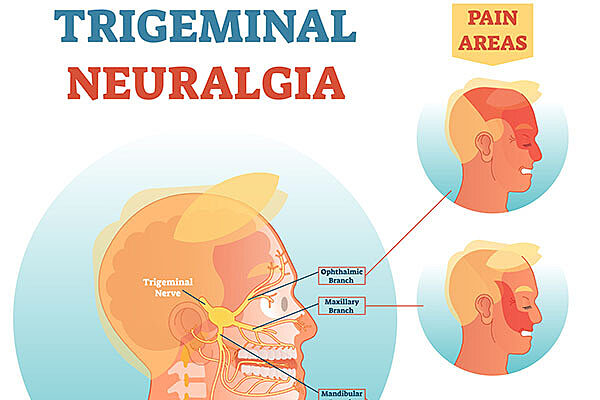Understanding Life with Trigeminal Neuralgia
Living with a chronic condition like trigeminal neuralgia is often overwhelming. Dubbed the “suicide disease” due to its intense, electric-shock-like facial pain, this neurological disorder can severely impact daily life. Every small activity—from brushing your teeth to speaking—can become a trigger for excruciating discomfort.
For those unfamiliar, trigeminal neuralgia affects the trigeminal nerve, which carries sensation from your face to your brain. Even mild stimulation, like a breeze or a light touch, can set off sudden bouts of pain.
If you or a loved one is navigating life with this condition, know that you’re not alone. Coping mechanisms, lifestyle adjustments, and emotional support resources can make a world of difference.
Recognizing the Emotional Impact
One of the hardest parts about trigeminal neuralgia isn’t just the physical pain—it’s the emotional toll it takes. Many people report feelings of anxiety, depression, isolation, and helplessness.
Common Emotional Challenges:
-
Fear of Triggers: Constantly worrying about everyday actions that might spark pain.
-
Social Isolation: Canceling plans or avoiding social interaction to prevent flare-ups.
-
Depression: Persistent sadness, hopelessness, or lack of interest in things once enjoyed.
-
Sleep Disturbances: Pain episodes often occur at night, disrupting sleep and worsening mood.
Mental health care is essential. Speaking with a therapist or counselor familiar with chronic pain conditions can help you process your emotions and develop coping strategies.
Practical Coping Mechanisms for Daily Life
Living with trigeminal neuralgia requires careful planning and daily adjustments. Here are some evidence-backed strategies to help manage both physical pain and emotional distress:
1. Medication Management
Medication is often the first line of defense. Common treatments include anticonvulsants like carbamazepine and gabapentin. Muscle relaxants and, in severe cases, surgical options are also available.
Always consult a neurologist who specializes in trigeminal neuralgia for personalized treatment.
2. Establishing a Routine
Pain unpredictability can make life chaotic. Building a consistent daily routine provides a sense of control. Simple practices like waking up at the same time each day and scheduling rest periods can improve mental well-being.
3. Pain Tracking
Keep a pain diary to log:
-
When pain occurs
-
Duration and intensity
-
Possible triggers
-
Response to medication
Over time, this can help identify patterns and improve pain management strategies.
4. Dietary Adjustments
Certain foods and drinks can trigger episodes. Common culprits include:
-
Caffeinated beverages
-
Very hot or cold drinks
-
Hard-to-chew foods
-
Spicy dishes
Soft, lukewarm meals are often easier on sensitive nerves.
5. Stress Reduction Techniques
Stress can intensify trigeminal neuralgia pain. Consider these calming techniques:
-
Mindfulness Meditation: Helps focus on the present moment, reducing anxiety.
-
Deep Breathing Exercises: Lowers stress hormone levels in the body.
-
Yoga or Gentle Stretching: Promotes relaxation and mental clarity.
Apps like Calm and Headspace offer guided meditation tailored for chronic pain sufferers.
Alternative and Complementary Therapies
While medical treatment is essential, many people find relief through alternative therapies. Always check with your healthcare provider before starting any new treatment.
1. Acupuncture
Some individuals report pain reduction after acupuncture sessions. Though research is still ongoing, this ancient practice may help by stimulating the nervous system and promoting pain-relieving endorphins.
2. Physical Therapy
Gentle neck and facial massages, combined with physical therapy exercises, can sometimes help manage nerve sensitivity.
3. Nutritional Supplements
Supplements like magnesium, B vitamins, and omega-3 fatty acids have anti-inflammatory properties and may support nerve health. However, consult your doctor before adding supplements to your regimen.
4. Heat and Cold Therapy
Applying warm or cold compresses can offer temporary relief. Be careful with extreme temperatures, as sensitive facial nerves can sometimes react unpredictably.
Staying Informed: Knowledge is Power
Understanding trigeminal neuralgia empowers you to make informed decisions. Stay updated with the latest research, treatment options, and coping techniques.
Helpful Online Resources:
-
The Facial Pain Association (FPA)
-
American Association of Neurological Surgeons (AANS)
-
National Institute of Neurological Disorders and Stroke (NINDS)
Educational resources like webinars, patient testimonials, and doctor Q&A sessions can provide both hope and practical knowledge.
Tips for Caregivers
If you’re caring for someone with trigeminal neuralgia, here’s how you can help:
-
Be Patient: Pain episodes can come on suddenly and without warning.
-
Stay Informed: Learn about the condition so you can offer appropriate support.
-
Offer Practical Help: Running errands, preparing soft meals, or helping with appointments can ease their daily burden.
-
Encourage Professional Support: Remind them of counseling options if emotional distress increases.
Most importantly, ask your loved one how you can best support them.
When to Seek Immediate Medical Help
Though flare-ups are common, certain symptoms warrant immediate medical attention:
-
Sudden, severe, and prolonged pain episodes unresponsive to medication
-
Facial numbness or weakness
-
Unexplained changes in vision or speech
These could signal complications or related neurological conditions.
Conclusion
Living with trigeminal neuralgia is undeniably challenging, but with the right coping mechanisms, medical treatments, and support resources, it is possible to reclaim quality of life. Whether it’s finding comfort in support groups, practicing daily mindfulness, or working with a compassionate healthcare team, each step you take can make life more manageable.
Remember, you’re not alone in this journey. Thousands worldwide are navigating similar paths—facing each day with courage and resilience. Equip yourself with knowledge, lean on your support network, and prioritize both physical and emotional wellness.







